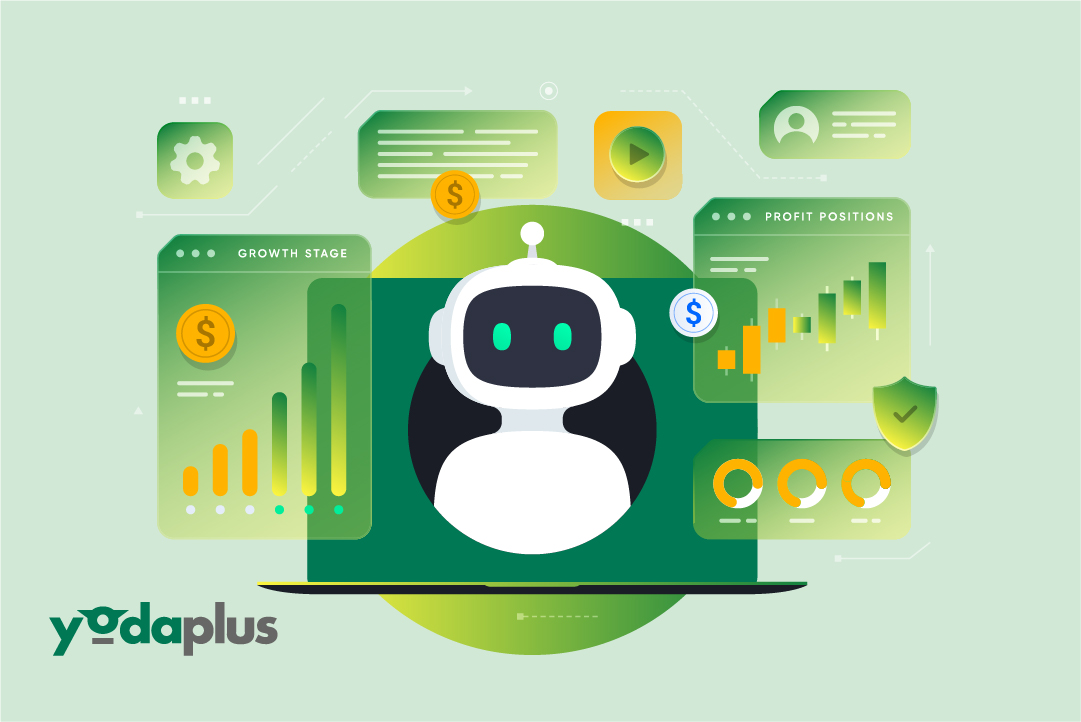
How AI is Transforming FinTech: From Fraud Detection to Personalized Banking
March 4, 2025 By Yodaplus
Introduction
Financial Technology has revolutionized how we manage money, make payments, and access financial services. But with innovation come challenges—fraud, security risks, and the growing demand for hyper-personalized experiences.
This is where Artificial Intelligence (AI) steps in, acting as a game-changer for financial technology. AI-driven solutions are detecting fraud in real-time, automating risk assessments, and delivering personalized banking experiences like never before.
If you’re new to the concept of FinTech, check out our What is FinTech? blog to understand how technology is reshaping financial services. In this blog, we’ll dive deeper into AI’s impact on FinTech and how it is solving some of the industry’s biggest challenges.
Fighting Financial Fraud with AI
The Problem: Rising Cyber Fraud and Security Threats
With the digital transformation of banking and payments, cybercriminals are finding new ways to exploit vulnerabilities. Traditional fraud detection systems often rely on predefined rules, making them slow and inefficient at detecting sophisticated fraud attempts.
The AI Solution: Real-Time Fraud Detection
AI-powered fraud detection systems use machine learning algorithms to analyze vast amounts of financial transactions in real-time. AI detects unusual patterns, such as:
- Suspicious login attempts from unusual locations
- Uncharacteristic spending behavior on credit cards
- Multiple failed login attempts signaling possible account takeovers
For instance, banks and payment gateways now use AI-driven models to flag fraudulent transactions before they happen, preventing billions in losses.
AI-Powered Risk Assessment in Lending
The Problem: Traditional Credit Scoring is Outdated
Banks and financial institutions rely on credit scores to determine loan eligibility. However, traditional scoring models are often inflexible and fail to assess new-to-credit customers or those with non-traditional income sources.
The AI Solution: Smarter Credit Risk Management
AI-based Credit Risk Management Software analyzes alternative data points such as:
- Employment history
- Utility bill payments
- Spending behavior
- Social media activity (in some cases)
By leveraging AI, FinTech lenders can offer fair and accurate credit scoring, making loans accessible to a wider audience, especially to underbanked individuals who struggle with traditional credit evaluations.
Hyper-Personalized Banking Experiences
The Problem: Generic Financial Services
Traditional banking systems treat customers in the same way, offering one-size-fits-all products and services, failing to consider individual financial needs and behavior.
The AI Solution: Tailored Financial Advice & Banking Services
AI-powered personal finance assistants analyze a customer’s spending patterns, savings habits, and investment behavior to provide:
- Customized budgeting plans
- Personalized loan and investment recommendations
- Automated savings suggestions
For example, robo-advisors use AI to craft personalized investment strategies, making wealth management accessible without needing a financial advisor.
AI-Driven Chatbots for 24/7 Customer Support
The Problem: Slow and Inefficient Customer Service
Long wait times, frustrating call center experiences, and limited human support reduce customer satisfaction in traditional banking.
The AI Solution: AI-Powered Virtual Assistants
AI chatbots like Banking AI Assistants can:
- Answer customer queries instantly
- Process loan applications
- Guide users through transactions
- Detect potential security threats
By automating customer support, banks and FinTech solutions significantly reduce costs and improve user experience.
Enhancing Financial Data Security with AI
The Problem: Data Breaches and Identity Theft
Financial institutions handle sensitive user data, making them prime targets for cyberattacks. Traditional security measures, like password-based authentication, are often insufficient against sophisticated cyber threats.
The AI Solution: Biometric Authentication & AI-Driven Cybersecurity
AI enhances security through:
- Biometric verification (face, voice, fingerprint recognition)
- Behavioral analysis to detect unusual user activity
- AI-powered anomaly detection systems that prevent cyber threats in real-time
For example, many banks now use AI-powered fraud prevention tools to monitor suspicious login behaviors, blocking unauthorized access before damage is done.
The Problem: Reactive Financial Decision-Making
Many financial institutions rely on historical data for decision-making, which may not accurately predict future risks or market fluctuations.
The AI Solution: Smarter Data Reporting for quick insights
AI-powered data analysis and reporting tools, such as GenRPT, enable financial institutions to move beyond static reports and gain real-time insights into:
- Market trends
- Customer creditworthiness
- Investment opportunities
- Potential financial crises
For instance, AI-driven treasury management software can analyze cash flow patterns, allowing businesses to anticipate financial needs and make informed decisions proactively.
Conclusion
AI is making financial services smarter, safer, and more personalized. From real-time fraud detection to AI-powered chatbots and predictive analytics, artificial intelligence is helping the industry solve some of its biggest challenges.
Yodaplus Financial Technology Solutions provides AI-driven tools that help financial institutions store, analyze, and utilize data effectively, improving decision-making and security. Adopting AI is no longer optional—it’s essential. As AI continues to evolve, so will the possibilities for FinTech solutions, creating a more efficient and secure financial future for all.
Want to learn more about FinTech? Read our What is FinTech? blog to get started!